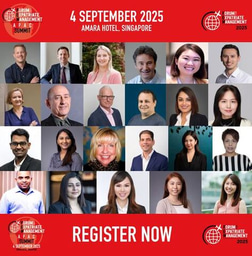A corporate perspective from Asia: COVID-19 in the Philippines - What is Your People Strategy?

The Philippines' Enhanced Community Quarantine imposed on March 17, specifically in the whole of Luzon, will have to be extended two to three months beyond the timeline earlier imposed by the government (ending on April 12, Sunday) for us to see real improvements in the efforts in testing and social distancing, ie flattening of the curve. This is the estimate of independent scientists former health secretary Dr Manuel Dayrit and University of the Philippines' Dr Darwin Bandoy. Contributory to this expanded timeframe are the backlogs of actual cases that need to be tested and an overall delay in the reporting of accurate data. It has also been cited that social distancing measures were not strictly enforced and were enhanced only a couple of weeks after the actual lockdown was announced to be in effect.
So what do we do now as a Human Resources community? What is the impact of this expanded lockdown to our people now that a 60-90 days' extension is imminent?
1. Office-based staff working from home
This group of employees I can say would be the least impacted of this expanded lockdown. However, we need to watch out for burn-out which could affect productivity. People staying at home to work are also likely to be caregivers of their own parents and children, essentially their households. Looking out for their wellbeing amidst this time, ensuring that they implement healthly boundaries, is essential. This is the perfect time to encourage your employees to participate in your mental wellbeing programs, and do personal development taking advantage of online learning opportunities. As I've said in my previous post, this is a moment that matter to employees, especially your top talent. Employees who are not happy with how you treat them at this time would likely be out the door the first opportunity they get when this is all over.
2. Globally mobile employees
Talent exchange and placements are on hold or highly disrupted at best, not only for social distancing measures but also due to immigration restrictions in most countries. Due to business requirements though, this could mean employees could be working from home (country) on behalf of the host country. This is open to financial and regulatory risks on personal and corporate taxes, permanent establishment and immigration (if they are foreign nationals in their home countries). It is best for HR to have awareness of this population in their companies; and to engage tax and immigration partners to manage this risk.
3. Employees doing supply chain support
Field and production employees of companies needing to deliver essential products and services are not only at the risk of burn out but also getting infected of the virus as they are the most exposed of all. You will need to think of possible mitigation actions such as providing housing facilities within or close to the place of work to minimize the employees' exposure travelling to and from work. Providing personal protective equipment (PPE) is a basic provision: one essentially cannot force people to work if they feel unsafe so safety while delivering work is important. You may also need to consider paying premium rates during this time as absenteeism would likely grow during this expanded period.
4. What of employees in business lines considered as non-essentials?
This is the most financially impacted group of employees we have, if they are not office-based employees (thus working from home is not an option). Frankly, pay-cuts and lay-offs are words that are now being exchanged. But I see businesses starting to explore other options with the hope of exhausting them before going to these extremes. There are also hopes that governments globally would be able to extend assistance to no-work-no pay employees, or those who would exhaust private company's assistance and annual leave credits. Companies with influence should start thinking of lobbying these issues to the government.
All of us are impacted as it is now. However, looking beyond 13 April is the right thing to do, as the extension is getting to be an inevitability. We need to do this so we are best positioned to plan for both our organizations and our people.
(This article first appeared on LinkedIn, April 5)
Emmarie will be one of the panelists on FEM's Covid-19 APAC Webinar, 22 April. Find out more about Emmarie and her fellow speakers here:Meet the speakers on our Covid-19 APAC Worldwide Webinar - 22 April
Register for FEM's Covid-19 APAC Worldwide webinar, 22 April NOW
Register for FEM's full series of regionally focused webinars:
- APAC Webinar: Wednesday 22 April - Register
- Americas Webinar: Wednesday 6 May - Register
- EMEA Webinar: Wednesday 20 May - Register





Please sign in or register for FREE
Sign in OR sign up to become a registered The Forum for Expatriate Management website user
Subscribe here